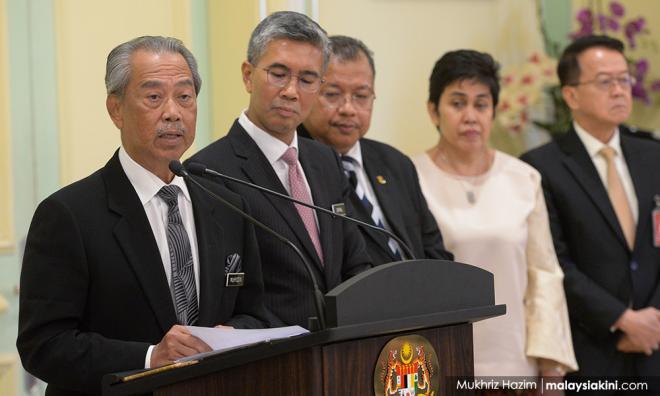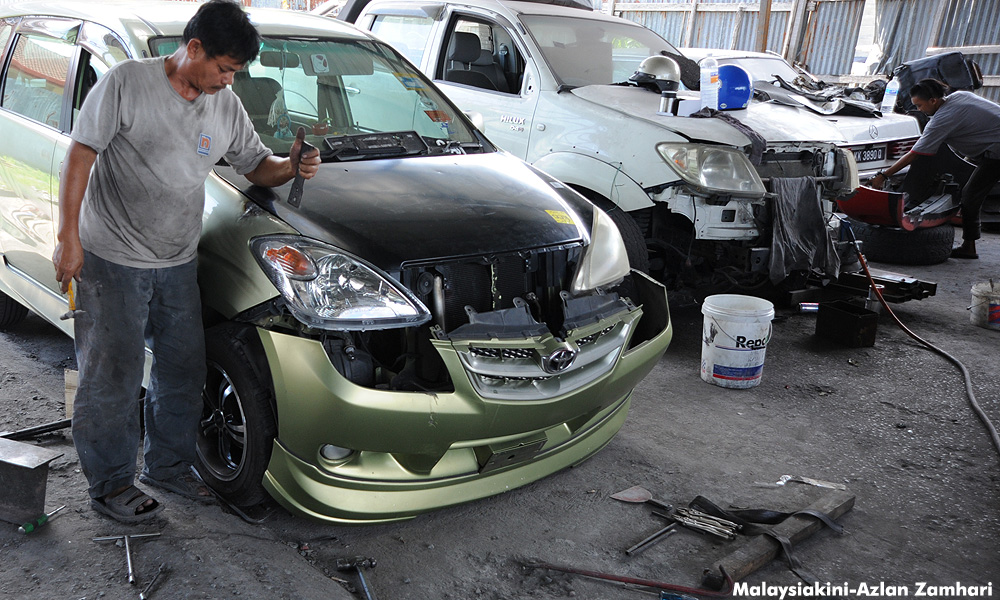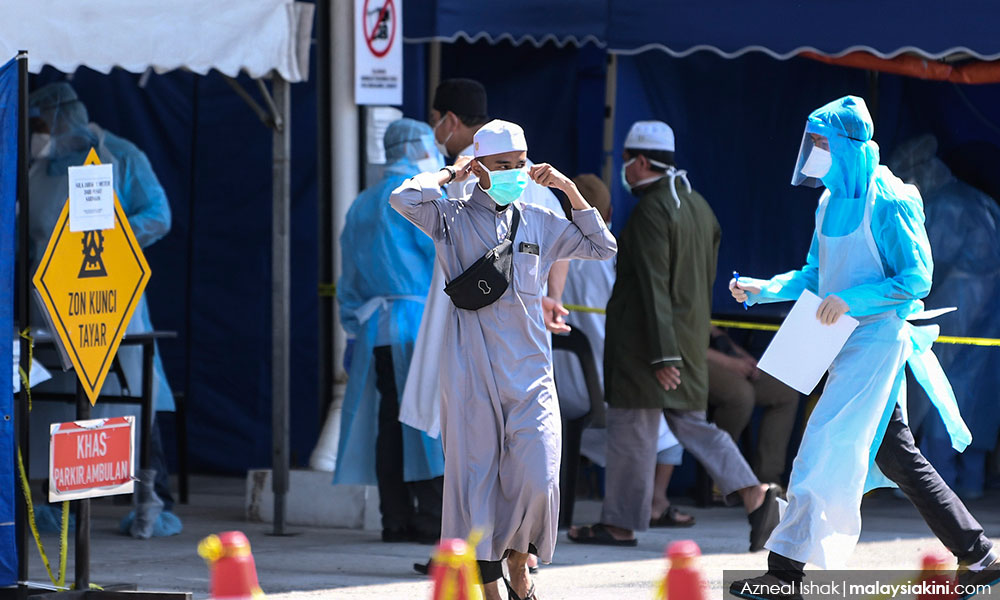
MP SPEAKS | The fallout from the coronavirus pandemic is something we have never witnessed before in Malaysia’s history. The movement control order is necessary to overcome the pandemic. But the economic recovery will not be achieved through conventional stimulus.
The recently announced economic responses to Covid-19 falls short.
Aside from some budget allocated for the Ministry of Health, the coronavirus-response package recently announced does not go nearly far enough and it also only offered limited solutions.
The announcement by the government that workers can withdraw RM500 per month for a year from their retirement savings was widely criticised.
Why? This is because many Malaysians are already earning meagre salaries, with insufficient savings and are forecasted to live longer. In 2017, only 18 percent of EPF members met the minimum savings target of RM228,000. Khazanah Research Institute estimated that almost half of EPF contributors will have sufficient savings in place to withdraw RM500 for even six months.
The benchmark for fiscal stimulus is 4-10 percent for developed countries. Even our neighbour Indonesia has announced a fiscal stimulus of 1.4 percent of GDP. Malaysia’s fiscal stimulus to date of a mere 1.2 percent of national GDP is simply insufficient.
Efforts to merely tinker around the edges will not work as this global pandemic is unprecedented. The world that has grown smaller and more interconnected than ever before is now separated and isolated. The impact on Malaysia as a small, open, trading nation is massive.
'Wartime' coordination needed
Many have likened the Covid-19 challenge as facing a war.
While we all work together to stay home to stop the spread of this virus to win the battle on the medical front, the price is a recession on the economic front. In short, we need to flatten both the pandemic and recession curves.

In Malaysia, hundreds of thousands - possibly nearing a million as claimed by the SME Association of Malaysian - of jobs are at risk from layoffs, reduced pay, and lost hours. Virtually every sector of the economy stands to lose a large chunk of its business. Household incomes will be devastated, and spending by consumers and firms will rapidly decline.
How should the government respond? Going back to the war analogy, we must respond as governments responded during, and in the aftermath of, World War Two. Wartime coordination is needed to reflect greater urgency. Briefings by the Ministry of Health to the National Security Council must be stepped up. Similarly, the Economic Action Council must meet more regularly.
In fact, we must not only address the immediate challenges brought about by the Covid-19 pandemic but also seize the opportunity to overcome the unresolved issues from the 1997 Asian Financial Crisis and the 2008 Global Financial Crisis. This requires a bold major shift in the economic paradigm. If we fail to act, we will not only fail ourselves but our future generations.
The GI Bill had provided massive benefits to American war veterans and resulted in huge enrollments in universities and the creation of a new generation of the middle class. The Welfare State in Britain left behind the legacy of the National Health Service and national insurance, and the introduction of the Deutsche Mark in Germany eliminated 90 percent of government and private debt, contributing to the Miracle of the Rhine. This all took place after World War Two.
The situation right now demands not “nudges” or “incentives” but direct action on developing new industries and preparing our workforce for the Fourth Industrial Revolution.
Bipartisan consensus
The first thing that the Prime Minister and the government must do is to convene a sitting of Parliament to pass a supplementary budget, earlier than the planned May 18 date. This will enable a substantial economic stimulus to be passed. I am confident MPs from both the government and opposition will support a properly planned package in the national interest.
But the executive must reach out to the opposition to reach a broad bipartisan consensus. Existing mechanisms such as the Budget Select Committee exists for these efforts to be achieved. At the same time, the ministers must be courageous to embrace this new, expansive economic paradigm if they encounter pockets of resistance from within the system, and Pakatan Harapan must support the government on this part.

The immediate priority must be our healthcare system. Our doctors, nurses - and patients - deserve better. Years of under-investment and leakages have taken its toll.
The government must set up temporary field hospitals to increase the number of beds, drive-through clinics to rapidly expand daily tests, and emergency health centres. The massive number of medical graduates that are unemployed can be employed at least on a part-time basis to support the health workers.
It means cranking up production of essential equipment and medication and establishing support services for the hungry, homeless and the most vulnerable. We may dislike the idea of treating foreign workers and refugees like citizens, but pandemics do not look for an IC.
As in facing a war, it means deploying an army to disinfect transport hubs, schools, religious centres, and other critical public places.
Second, we need to make it easier for people to stay home, such as by implementing short-term debt deferments, including on small and medium enterprises (SMEs) and mortgage loans, and suspending utility bills for the B40 group, as some European countries are already doing.
The government also should be providing income support in the form of extended unemployment insurance and food supply security.
Housing is crucial. In a time like this, no one deserves to be homeless because of their inability to meet their monthly rental needs. In fact, being homeless would magnify the spread of the pandemic and provide them with an avenue to attack our most vulnerable. Residents in public housings such as the PPR should also obtain a moratorium or total debt forgiveness for outstanding rents due to this massive crisis.
Another top priority is to provide emergency cash support to households. This can be the form of expanding Bantuan Sara Hidup, wage support for SMEs that form the backbone of our economy, expanding the Employment Insurance Scheme or even - to really make it transformational - looking at one form of universal basic income or another.
The most radical would be "helicopter money" through the funding of fiscal injection or transfers via monetary expansion. This is a more direct expansion of cash suitable for today’s era of low-interest rates and inflation. The cost will be a slight dip in the Bank Negara’s balance sheet.
Hong Kong is already doing so. After the lingering economic inequality, especially unaffordable housing, fueled massive riots, it was hit by a major disruption to its economy following the Covid-19 pandemic in China. A month ago, the government announced a cash handout of HK$10,000 (RM5,660) for every adult permanent resident.
There will be warnings from some bankers and bureaucrats on the impact on our deficit. But countries going through unprecedented crises like war always had to take a huge debt to overcome the challenges.
After taking all the steps necessary for today, the government needs to mobilise once again.
The rakyat, not the rich, needs to be propped up
Only big government, big public investments, and big public-employment programmes will ensure a quick bounce back, rather than another protracted jobless recovery. In an economic system, the actors are households, businesses and governments. When the first two are paralysed, the government must step in.
But in the last 2008 crisis, much of the stimulus fuelled increasing inequality. Bailouts of crony-linked corporations were made while the everyday man was given meagre cash handouts without any sort of empowerment.

This time, it needs to be different. The rakyat, not the rich, needs to be propped up. Any support given to the private sector needs to come with strict conditions for the benefit of the workers.
Once this pandemic is behind us, we need to start hiring. Job opportunities should be paired with training and education. This will help the rakyat qualify for better-paid private-sector employment when the economy recovers as covered in the stimulus package announced last month.
But we must also accept the reality of temporary employment under the gig economy. Food delivery is doing well now, but they will need great protection and security.
Without direct, guaranteed employment, we are looking at years and potentially decades of elevated unemployment. On the contrary, a person with a living-wage job can pay a mortgage, go travelling, and provide for their family. An ample supply of good jobs for all who want them is the surest way to bring every sector of the economy back to full health.
But how will the government pay for it all? The same way it pays for everything else.
It should not take a pandemic of this scale to remind us that the government is self-financing. Our public financial institutions – Bank Negara and the Ministry of Finance - ensure that all government bills get paid.
No doubt, the country’s fiscal deficit will widen from the revised forecast of 3.4 percent of GDP. But if there is time to dip into our public reserves or borrow money, it is now. Not only are interest rates at an all-time low, but we are in the midst of a global crisis.
Yes, borrowing will have an impact on money available for future generations. But if we leave them an economy that is in tatters because of a meek response, they will not appreciate our austerity.
The focus should be on creating good jobs for the unemployed and making sure that our weakest and most vulnerable are taken care of by society.
Failing which - like much of the world did following the 2008 crisis - will result in disgruntlement among ordinary members of society with the elite, resulting in the victory of Donald Trump in the US and Brexit in Britain.
As a plural society, Malaysia simply cannot afford this.
NIK NAZMI NIK AHMAD is MP for Setiawangsa, PKR chief organising secretary and chair of the Defence and Home Affairs Parliamentary Special Select Committee. - Mkini


No comments:
Post a Comment
Note: Only a member of this blog may post a comment.